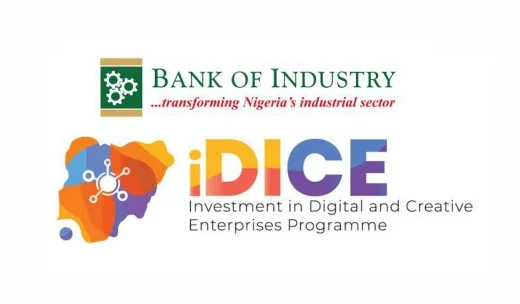The Role of AI, Blockchain & Mobile Money in Africa's Health Financing Future | Technology

The World Bank, in collaboration with leading institutions such as the African Development Bank (AfDB), the World Health Organization (WHO), the United Nations Development Programme (UNDP), and the Global Financing Facility (GFF), has highlighted the potential of digital innovations to revolutionize health financing in East and Southern Africa. The region's healthcare systems are fraught with inefficiencies, primarily due to fragmented infrastructures and outdated paper-based processes that hinder the proper allocation and utilization of funds. Many healthcare providers in rural and underserved areas lack access to banking services, delaying payments and leading to resource mismanagement. While digital tools such as mobile money platforms, biometric identification, and blockchain have transformed sectors like banking and logistics, their integration into healthcare financing remains limited. This gap presents an urgent need to harness technology to enhance efficiency, transparency, and accountability in healthcare financing.
One of the most significant challenges in healthcare financing is verifying patient identities and ensuring that only eligible beneficiaries receive medical services. Many citizens in the region lack formal identification, making it difficult to track service utilization and prevent fraudulent claims. To address this, countries such as Kenya have implemented biometric fingerprint identification through the National Hospital Insurance Fund (NHIF). This system ensures that beneficiaries are correctly identified at the point of care, reducing the prevalence of "ghost patients" and fraudulent claims. Similarly, Nigeria’s National Identity Management Commission (NIMC) has linked biometric data to health financing schemes, ensuring accurate patient verification. Tanzania’s Community Health Fund (CHF) has also integrated fingerprint-based registration, improving accessibility for rural populations. These biometric solutions not only strengthen fraud prevention but also streamline claims processing, making healthcare systems more efficient and reliable.
Mobile phone penetration across Africa is among the highest globally, making it an invaluable tool for health financing. By integrating mobile-based verification systems, governments can enhance accountability and reduce inefficiencies in service delivery. In Kenya, NHIF members receive unique verification codes via mobile phones after accessing services, ensuring that only registered users benefit from healthcare coverage. Similarly, in Nigeria and Tanzania, mobile-based identity verification has been linked to national databases, preventing duplication of services and minimizing fraud. Simple SMS confirmations, one-time PINs (OTPs), and mobile apps enable real-time service tracking, creating digital audit trails that improve transparency. Mobile integration also allows for instant communication between patients and health administrators, ensuring timely reporting and intervention when discrepancies arise.
Blockchain technology offers a groundbreaking solution for ensuring data integrity and financial transparency in health financing. The decentralized and tamper-proof nature of blockchain makes it ideal for tracking financial transactions and service utilization. Ethiopia has successfully implemented blockchain in its education sector to secure academic records, while Ghana has used it to enhance land registry systems and reduce corruption. South Africa’s Reserve Bank has experimented with blockchain for secure interbank payments, demonstrating its potential for reliable and efficient fund transfers. In healthcare financing, blockchain can be used to create an immutable ledger of financial transactions, ensuring that funds reach their intended recipients without interference. It also facilitates seamless verification of patient records and service claims, reducing fraud and enhancing accountability.
Financial technology (FinTech) is revolutionizing the way healthcare providers receive and manage funds. Mobile money platforms such as M-Pesa have played a pivotal role in expanding financial inclusion across Africa, yet many healthcare facilities, particularly in remote areas, still lack access to banking services. FinTech solutions, including mobile wallets and smart cards, can provide healthcare providers with direct access to funds, eliminating delays caused by bureaucratic hurdles. Governments can oversee these transactions through centralized dashboards, ensuring equitable fund distribution and tracking expenditures in real time. This digital approach reduces reliance on physical banking infrastructure, allowing healthcare providers to procure supplies, pay staff, and manage operational costs more efficiently. Additionally, using mobile money in health financing enhances financial accountability, preventing fund misallocation and ensuring that healthcare facilities are adequately resourced.
Artificial intelligence (AI) and machine learning (ML) are transforming financial management in healthcare by automating fraud detection, budget allocation, and risk assessment. AI-powered systems can analyze large volumes of financial data, identifying irregularities and optimizing resource distribution. In South Africa, banks like First National Bank (FNB) use AI to detect financial fraud, while Kenya’s microinsurance company Pula employs AI-driven analytics to design affordable insurance products for smallholder farmers. Nigeria’s financial sector has also integrated AI for credit risk assessment and economic forecasting. In health financing, AI can predict budget requirements, identify service gaps, and flag potential cases of financial mismanagement. Machine learning algorithms can enhance expenditure tracking, ensuring that funds are utilized efficiently and contributing to better health outcomes.
The report emphasizes that while these technological advancements hold immense potential, their implementation must be strategic and context-driven. Many healthcare facilities still lack reliable electricity, internet access, and digital literacy among staff, which poses significant challenges to technology adoption. The costs associated with implementing FinTech solutions, blockchain systems, and AI-driven analytics must be carefully evaluated to ensure long-term sustainability. Additionally, political resistance and governance issues remain key obstacles, as transparency-enhancing technologies often disrupt entrenched power structures. To address these challenges, governments should adopt an incremental approach, starting with pilot projects and scaling successful initiatives gradually. Integrating new technologies with existing systems rather than replacing them outright can help maintain continuity and reduce resistance.
Health financing in East and Southern Africa is at a critical juncture, with digital innovations offering a pathway toward more efficient, transparent, and inclusive systems. By leveraging biometric identification, mobile verification, blockchain, FinTech, and AI-driven analytics, governments can address long-standing inefficiencies and ensure that healthcare funds reach those who need them most. However, successful implementation will require collaboration between governments, development agencies, the private sector, and local communities. A thoughtful, problem-driven approach is essential to align technology adoption with existing infrastructure, governance frameworks, and social contexts. With the right strategies in place, these technologies can play a transformative role in reshaping healthcare financing, improving service delivery, and ultimately strengthening health systems across the region.








